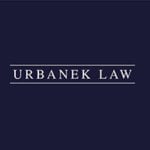-
Overview
Legal title to immovable ownership in Cyprus requires the registration of the immovable title in the name of the owner with the Department of Lands and Surveys (DLS or Land Registry).
The DLS operates under the Ministry of Interior of Cyprus. Each district in Cyprus, has a district lands office which is responsible for applying the different regulations, laws and practice of the DLS across Cyprus.
Every parcel of land is registered with the DLS and is assigned a different registration number.
The DLS being the main body and main source of information for all Cypriot land, all transfers and sales of immovable properties and all rights and/or encumbrances such as mortgages, easements etc., must be registered with DLS in order for them to have proprietary (rather than merely contractual) effects.
The DLS was established in 1858 and is considered as the oldest department of the civil service and one of the most structured land registration systems in Europe.
Over the years, Cyprus has become a popular location both for family and business. The relatively straightforward process for acquisition of properties, the variety of available properties, the competitive prices, the services-focused economy, the Mediterranean weather and the island-like lifestyle are some of the reasons contributing to this.
-
What is the main legislation relating to real estate ownership?
The main legislation in relation to real estate ownership is the following:
- The Immovable Property (Tenure, Registration and Valuation) Law, Cap. 224 (Immovable Property Law), which regulates, among others, ownership to immovable property and related rights, and jointly owned buildings.
- The Immovable Property (Transfer and Mortgage) Law 9/1965 (Transfer and Mortgages Law) which regulates, among others, registration of mortgages and statutory requirements pertaining to transfer of mortgaged properties.
- The Sale of Immovable Property (Specific Performance Law) No. 81(I)/2011 (Specific Performance Law) which was introduced with a view to protect the rights of buyers over the immovable property by creating an encumbrance in favour of the buyer until the latter is officially registered in the records of the Land Registry as the owner of the property.
- The Contracts Law, Cap. 149 (Contracts Law), which regulates the validity of all types of contracts, including those whose subject matter is immovable property.
- The common law and equity principles on acquisition of assets in accordance with the Courts of Justice Law 1964 (L.14/1964), of which section 29(1)(c).
-
Have any significant new laws which materially impact real estate investors and lenders come into force in the past year or are there any major anticipated new laws which are expected to materially impact them in the near future?
Since December 2024, a number of legislative and regulatory developments have either come into force or are in advanced stages of implementation, with direct relevance to real estate investors and lenders in Cyprus.
First, following a Supreme Court decision in June 2024, the operation of the “trapped (enclaved) buyers” regime under the Immovable Property (Transfer and Mortgage) Law was curtailed to the extent that it permitted title transfers without adequately safeguarding the rights of prior secured lenders. In response, a revised legislative framework was introduced in 2025, re-enabling transfers subject to materially stronger safeguards, including the existence of a separate title deed and the consent of beneficiaries of prior encumbrances (or, failing that, a court order). The reform has strengthened lender protection but may increase execution risk and transaction timelines in developments with legacy financing.
Secondly, Cyprus has enacted the Law on the Establishment of a Framework for the Screening of Foreign Direct Investments, implementing Regulation (EU) 2019/452, which enters into force on 2 April 2026. The law introduces a screening mechanism for certain investments by non-EU/EEA/Swiss investors in undertakings of strategic importance, which may include real estate connected to critical infrastructure or strategic assets, adding an additional regulatory layer for certain acquisitions.
In addition, as part of the broader tax reform agenda, stamp duty on contracts has been abolished with effect from 1 January 2026, reducing transaction costs for real estate acquisitions, financings, and related security documentation.
Further, a draft bill currently under public consultation proposes amendments to Cyprus’ AML framework to extend regulatory and supervisory obligations to persons who professionally engage in the purchase or sale of real estate, or who represent buyers or sellers, where they are not otherwise regulated entities. The reform is driven by heightened money-laundering risks identified in the real estate sector and is expected to increase compliance and due-diligence obligations for market participants. The Tax Department is expected to act as the supervisory authority.
Finally, the ongoing digitalisation of planning and Land Registry processes has improved transparency and efficiency, while also intensifying due-diligence scrutiny. Further modernisation and simplification measures have been announced by the Ministry of Interior for implementation during 2026.
-
How is ownership of real estate proved and are ownership records available for public inspection?
The DLS is the main source of information for all (registrable) rights attaching to immovable, including ownership information.
The typical proof of ownership for the immovable property (or part of it) is the title deed. The title deed is a registration certificate issued by the DLS in the name of the person who, according to the records of the DLS, owns the immovable property.
Other than the name of the owner, the title deed includes the details of the immovable property, including (in cases of plots of land), the existence of buildings on the plot.
Trusts of land are also recognised, provided that the statutory requirements of Chapter V of the Immovable Property Law are satisfied. The title deed may be issued in the name of the trustee (with or without express reference to the existence of the trust) .
Typically, the title deed will be requested together with a recent land registry search report (LRSR). The LRSR is issued by the DLS and may comprise a snapshot of the current status of the property and/or provide a full record of all transactions concerning the property as they appear in the records of the DLS.
An LRSR may be requested by “interested parties” as defined in section 51A(2) of the Immovable Property Law. In uncontested property transactions, the LRSR is part of the documents that the prospective purchaser will typically request from the seller (owner of the property) by means of minimum due diligence for the property.
Not all properties have title deeds. This is typically the case for newly developed properties where the developer is responsible for the development of complexes or a number of different standalone projects over the same plot. In this case, the rights of the buyer are secured with the deposition of the sale and purchase agreement between the developer (owner of the land) and the purchaser with the DLS. The deposition of the agreement creates an encumbrance (similar to a mortgage) over the immovable property in connection with the subject matter of the agreement. The rights created by the deposition recognise quasi-ownership rights and may be used as security for obtaining loans. In more complex cases, the developer may not be the registered owner of the plot but a purchaser securing their rights through deposition of the sale and purchase agreement. In this case, the rights (or any part of them) of the developer secured through the deposition may be further assigned in accordance with the Specific Performance Law. This may be done up to and until the issuance of a separate title deed for the respective properties, noting that the issuance of a title deed requires the withdrawal of the deposited agreement.
-
Are there any restrictions on who can own real estate, including ownership by any foreign entities?
In Cyprus, there are certain restrictions which are imposed on non-EU nationals in real estate acquisitions.
Third country nationals can acquire immovable property in two ways: either personally or through another vehicle, typically a Cypriot company or a company registered and existing in a country of the European Economic Area (EEA) (noting that references to third country nationals do not include EU nationals or individuals who are eligible to acquire Cypriot citizenship by reason of their years of stay in Cyprus (or by any other means)).
A third country national wishing to personally own property in Cyprus must acquire a permit (Permit) from the Council of Ministers (a power now vested in the District Administration Offices), under the Aliens Law, Cap.109 (Aliens Law).
The Permit does not allow for the acquisition of an indefinite number of properties. It restricts the acquisition to up to two units (indicatively two housing units, a housing unit and a shop up to 100 m², a residential unit and an office up to 250 m², a plot of land up to 4,000 m² if it is intended for the construction of a private residence).
The procedure is straight forward and requires among others the filing of information on the applicant (and their spouse, if any), proof of financial standing and the details of the property and is typically completed within one month.
The absence of a Permit does not prevent the buyer from signing and entering into the sale and purchase agreement. The third party national may enter into the agreement and deposit the agreement with the DLS thereby securing their rights over the property. They will not, however, be able to have the property registered in their name (and obtain title in their name) until the permit is secured and filed together with the transfer of title request with the Land Registry.
The permit requirement does not apply where the purchaser is a Cypriot company or a company incorporated in a European Economic Area jurisdiction provided that its registered office, central management or main establishment is in Cyprus or within the European Union or in a country member of the EEA respectively.
-
What types of proprietary interests in real estate can be created?
Immovable property is typically owned or leased.
As mentioned in questions 4 and 5 above, the ultimate proof of ownership is for the title deed to be issued in the name of the person designated as owner.
An owner is defined in the Immovable Property Law as a person who has the right to be registered as the owner of the property and is therefore not limited to registration. Based on this, quasi ownership rights may be provided under the Specific Performance Law when the purchaser has paid the full purchase price for a property that does not have separate title deed yet.
Leases are typically categorised into short-term and long-term. Long-term leases are defined in the Immovable Property Law as leases the duration of which exceeds fifteen years. The registration of long-leases with the DLS creates proprietary rights in favour of the long-lessee.
Other proprietary rights include mortgages, charges and other encumbrances, easements, restrictive covenants and licences, some of which are further described below.
-
Is ownership of real estate and the buildings on it separate?
The Immovable Property Law provides that “no separate registration for anything standing, planted or erected on land, shall be effected independently of such land, except where such thing or right belongs to a person other than the owner of the land”.
This is rarely the case.
-
What are common ownership structures for ownership of commercial real estate?
Businesses will typically acquire their business offices through a lease or licence to use (if units within complexes such as shopping malls).
The common structures identified below may apply to both ownership and leasing of commercial real estate property. Reference to ownership in this context refers to both.
- Direct (corporate) ownership: either directly or through subsidiaries.
- Joint venture: through the incorporation of a joint venture company and in accordance with the terms of the joint venture agreement (if applicable).
- Trusts: depending on whether the property produces income, the real estate may be owned directly by the trust or by companies (structures) under the trust.
- Special purpose vehicle (SPV): properties that are acquired for investment or for passive income will typically be acquired through an SPV, due to financial reasons, including the fact that tax is paid at the level of the SPV currently at a percentage of 12.5%.
-
What is the usual legal due diligence process that is undertaken when acquiring commercial real estate?
By means of minimum due diligence, the purchaser should determine the owner of the immovable property, the status of the immovable property and whether the person with whom they communicate is authorised to bind the owner or the rights holder.
- If the property comprises a house or building, it is important to determine that the property has all necessary planning and building permits or if all construction is completed, the final approval certificate. The final approval certificate is important for the issuance of the title deed and may also affect the ability of the owner to subsequent sales.
- If there is no title deed in the name of the seller, whether the seller can secure their rights to be able to enter into this agreement.
- If the property has mortgages or other charges, an undertaking is typically requested from the financial institution that it will release the mortgage or other charges immediately on the settlement of the amount owned, thereby ensuring that the purchaser will acquire the property free from any mortgages and encumbrances.
- Whether the property is subject to rights of third parties, including easements, long-leases, personal memos in favour of third parties (judgment creditors, utility authorities etc).
- Identify the status of the seller, namely that they are not and will not be under liquidation/bankruptcy or other proceedings and their ability to provide the property free from encumbrances.
- Ensure that the description of the property is accurately reflected in the agreement.
Depending on the findings, necessary mitigating action is taken.
-
What legal issues (if any) are outside the scope of the usual legal due diligence process on an acquisition of real estate?
The scope of the due diligence process is typically agreed in advance.
For due diligences that are strictly limited to real estate, these will typically focus on the immovable property per se and will typically not look into the financial capacity of the seller.
-
What is the usual process for transfer of real estate, and when does liability pass to the buyer?
The conclusion of a sale and purchase agreement can be distinguished into three main stages:
- The pre-contractual stage;
- The execution stage; and
- The post-execution stage.
At pre-contractual stage the seller does not have any legal responsibilities. It is the buyer’s responsibility to assess whether the potential subject matter of the contract is to their satisfaction by carrying out the relevant due diligence. At this stage, the seller’s only obligation is to provide true and accurate information as and to the extent requested to do so by the buyer.
At execution stage, the seller and the buyer sign the sale and purchase agreement. The seller will typically accept to perform obligations which they are already bound to perform under statute and any other commercial obligations agreed with the buyer.
Following the execution of the sale and purchase agreement, the parties must arrange for the collection of the necessary documents for the DLS to perform the transfer procedure.
Typically, the documents required will comprise an original of the sale and purchase agreement, confirmations of the payment of all utilities, immovable property taxes, and capital gains tax. All documents and certificates confirming this information are submitted together with the necessary forms at the DLS for inspection.
Following inspection of the documents, the DLS officer will arrange together with the parties the date and time for them to appear at the DLS office. Both parties must be present. If this is not possible the parties must be represented by an authorised attorney.
Transfer fees are paid on the day with the exception of new properties which are subject to VAT instead.
The title deed is issued instantaneously.
This is the typical procedure when the immovable property has title deed and no mortgages are involved.
-
Is it common for real estate transfers to be effected by way of share transfer as well as asset transfer?
Yes. The considerations for this are mainly tax and procedural.
Such decision should always be assessed from a tax perspective for the purchaser to be aware of their prospective tax exposure.
At the same time, acquisition of a company is procedurally less time-consuming compared to the acquisition of the immovable property directly. The typical procedure for the transfer of immovable property is set out in question 11 above.
A purchaser of a company with immovable property as underlying asset should perform their due diligence on both the real estate and the company itself, not least for compliance with all its statutory, tax, vat and other obligations (loan and other).
-
On the sale of freehold interests in land does the benefit of any occupational leases and income derived from such lettings automatically transfer to the buyer?
Yes. The parties will typically regulate this matter by contract. Where this is not the case, the law is likely to recognise a trust relationship whereby the seller holds as trustee any benefit derived after the sale for the benefit of the buyer.
Note in particular the case of long-leases (leases exceeding the period of 15years which are duly registered with the DLS in accordance with the provisions of the Immovable Property Law) which create proprietary rights over the immovable property and which are transferable, may be used as security, are assignable and are transmissible subject to the terms of its creation.
-
What common rights, interests and burdens can be created or attach over real estate and how are these protected?
Some of the common rights, interests and burdens are the following:
a) Easement, in the form of a right of way/access over another’s property.
b) Long leases.
c) Usufruct (life interest/tenant for life), giving the right to a person to use a property for their lifetime.
d) Restrictive covenants: limitation on how the property can be used.
e) Mortgages.
f) Other types of encumbrances, which may include claims or liens on the property such as memos for unpaid taxes.
g) A deposited sale and purchase agreement/assignment agreement.
In order for the above to attach to land they must be registered with the DLS in accordance with applicable procedure.
Should this not be the case, any protections offered will be contractual between the parties and will not bind any third-parties including subsequent purchasers acquiring the property in good faith or creditors.
In certain instances, ownership may be acquired through undisputed and uninterrupted adverse possession of thirty years, but this is rarely (if ever) invoked.
-
Are split legal and beneficial ownership of real estate (i.e. trust structures) recognised?
Yes, trusts of land are recognised subject to satisfying the conditions of Chapter V of the Immovable Property Law. This provides for the filing of the trust instrument with the DLS. The trust instrument is kept in a separate registry which is not publicly available.
The title to the immovable property may be registered in the name of the trustee or in the name of the trustee as trustee of the trust in question. This is the current practice following a recent case on the matter .
-
Is public disclosure of the ultimate beneficial owners of real estate required?
No.
-
What are the main taxes associated with real estate ownership and transfer of real estate?
Taxes associated with real estate ownership
The registered owner of the immovable property must pay certain taxes, including immovable property tax.
Once a property is purchased, purchasers should be aware that such may be subject to various taxes imposed by local authorities and municipalities, depending on its location (this may include sewerage tax, refuse and collection tax).
Taxes associated with transfer/sale of real estate
Taxes and VAT
Before any transfer is effected at the Land Registry, the seller must pay and settle in full the capital gains tax (20% on the profit made by the sale), all taxes concerning immovable property and all utility dues such as water, electricity, sewage etc.
The seller is also under a duty to pay a contribution tax called “Central agency for equal distribution of burdens contribution”. The contribution is calculated as 0.4% of the purchase price of the property.
There may also be VAT considerations in the event where the property is new.
Transfer fees
Transfer fees apply when VAT is not payable, typically when the property is not new.
The amount of transfer fees is calculated by reference to the purchase price as set out below unless where the transfer occurs between relatives up to third degree of kinship or between spouses*.
- For every euro up to €85,000: 3%.
- For every euro exceeding €85,000 but not exceeding €170,000: 5%.
- For every euro exceeding €170,000: 8%.
At the moment, transfer fees are discounted by 50%.
Certain debt-for-asset swap arrangements may, under certain conditions, be exempted from transfer fees.
*Note: when the transfer is between family members, different fees and considerations apply.
-
What are common terms of commercial leases and are there regulatory controls on the terms of leases?
The common terms of commercial occupational leases are set out below. This summary does not focus on long leases, the common terms of which differ due to their nature.
(i) Lease term: the commencement and expiration dates should be clearly stated.
(ii) Renewal: whether there is a right of renewal, and if so, if it is automatic or a certain procedure must be followed.
(iii) Rent amount and increase: the agreed rent and provisions as to its increase.
(iv) Termination: whether with or without cause and under which conditions.
(v) Permitted use and use of common areas: the allowed purpose of use and any conditions applying to the use of common areas.
(vi) Rights of entry and inspection: typically includes by the lessor to be able to enter the property on emergency cases and to inspect the condition of the property. Reasonable notice is usually required for the latter.
(vii) Insurance: The lessor (if the landlord) is expected to provide insurance for the premises. The lessee is expected to insure any content they maintain in the premises.
(viii) Underletting: Is typically not allowed unless with the prior consent of the lessor in writing.
(ix) Assignment: Is typically not allowed with the exception of assignment to group companies under specific circumstances such as group restructuring.
(x) Delivering the property in the state initially delivered: The lessor will typically require that any non-permanent reorganisation of the premises is undone at the expense of the lessee and the premises delivered on termination of the agreement in its initial state. Where the change is permanent, the lessee will typically be required to obtain the prior consent of the landlord in writing.
Note that:
A lease agreement exceeding a term of one year must be in writing and signed by every person who is bound by it (or their authorised representatives) in the presence of at least two witnesses who also place their signatures as witnesses on the agreement.
Long leases must be registered with the DLS in order to create proprietary consequences.
-
What remedies are commonly available for landlords in the event of a tenant breach of a commercial lease?
The remedies available for breach of a commercial lease by the tenant are the remedies available for breach of contract under common law and equity.
Typically, the landlord will rescind the contract and claim damages while trying to mitigate their losses by finding another tenant.
-
How are use, planning and zoning restrictions on real estate regulated?
The primary law for the use and planning restrictions on real estate is the Town Planning and Country Planning Law of 1972 (L. 90/1972) (Town Planning Law).
The Town Planning Law provides for the preparation and implementation of country-wide development plans, local plans and specific area plans, policy statements and development plans setting out the planning and zoning conditions and limitations.
The department responsible for the implementation and enforcement of the Town Planning Law is the Department of Town Planning and Housing of the Ministry of Interior under delegation orders issued by the Minister of Internal Affairs.
In an effort to simplify and expedite the procedure for the licensing of developments, a new licensing framework was implemented for specific types of developments. Under this new framework, the procedure for issuing building permits is simplified with the involvement of the private sector, specifically, the architecture and civil engineer responsible for the development, who confirm the accuracy of the information filed with the application.
The above measure is expected to result to the reduction of bureaucratic procedures and makes possible the issuance of building permits within twenty business days from a valid submission of the documents.
The filing can be done through the designated online platform. If the Town Planning Authority does not issue the permit within twenty business days, the permit is considered as granted and the responsible architect and civil engineer remain responsible for the correctness, accuracy and truthfulness of the information filed.
The developments that can benefit from this new framework are the following:
– Residential developments in plots or plots under development, relating to up to 2 residences which are not located in areas of special characteristics and for which the exercise of the discretion of the planning authority is not requested.
– Developments relating to up to 2 residences, which are located in areas of special characteristics or for which the exercise of the discretion of the planning authority is requested (for example Buffer Zone, Natura 2000 etc.).
– Developments relating to 3 or 4 residentials units, 12 residences in a row, up to 20 residential apartments in a building complex as well as mixed commercial/office related/residential developments of an area of up to 1,000 square meters, in plots and in plots under development.
Depending on the type of development that will be licensed, a different procedure is followed.
The measure entered into force on 02.10.2024.
-
Who can be liable for environmental contamination on real estate?
Liability for environmental contamination on real estate is regulated by legislation transposing into national law European directives or under national law. The main legislation is the Law on Environmental Liability on the prevention and remedying of environmental damage (L. 189/(I)/2007) which transposes into national law Directive 2004/35/CE on environmental liability with regard to the prevention and remedying of environmental damage (Environmental Liability Law).
Under the Environmental Liability Law, the operator of any economic activity carried out for commercial purposes is required to take appropriate preventing measures where there is an imminent threat of environmental damage. The operator is further required to notify the responsible authority (in this case the Department of Environment) where despite the preventative measures adopted, the threat is not dispelled.
If environmental damage has occurred, the operator is required to take all necessary measures to contain the damage in accordance with the provisions of the Environmental Liability Law and the directions of the responsible authority which must be informed without delay. The cost is on the operator unless the environmental damage is not attributed to the fault or negligence of the operator.
Reference to operator is defined in the Environmental Liability Law as any natural or legal, private or public person who operates or controls the occupational activity or, where this is provided for in law, to whom decisive economic power over the technical functioning of such an activity has been delegated, including the holder of a permit or authorisation for such an activity or the person registering or notifying such an activity.
Natural and legal persons falling under the operator definition are responsible and liable under the provisions of the Environmental Liability Law. In cases of legal persons, the liability extends to any officer, director, president, secretary or any other member who consented or facilitated by them.
There are separate legislations regulating specific types of pollution like water pollution which is regulated under the Control of Water Pollution Law of 2002 (L.106 (I)/2002) (Water Pollution Law). The Water Pollution Law imposes criminal liability which does not exceed three years and/or a fine of up to half million euros where a person is found liable under its provisions.
The Civil Wrongs Law (Cap. 148) further provides for liability on the basis of nuisance and negligence which provide for identical provisions on the common law actions of nuisance and negligence.
-
Are buildings legally required to have their energy performance assessed and in what (if any) situations do minimum energy performance levels need to be met?
Yes. Directive 2010/31/EC on the energy performance of buildings was transposed into national law under the Energy Performance of Buildings Law 2006 as amended by amending law 155(I)/2020 (collectively Energy Performance Law).
Every new building/erection/development (building) needs to comply with the minimum requirements of energy performance set out in the Energy Performance Law and relevant regulations. Based on their energy performances, buildings are rated from A (highest efficiency) to G (lowest efficiency).
An energy performance certificate is issued if following its assessment, the building satisfies the requirements of the law.
-
Is expropriation of real estate possible?
Yes. This is regulated by the provisions of Article 23 of the Constitution and by the provisions of the Compulsory Acquisition of Property Law (L.15/62) (Compulsory Acquisition Law).
Expropriation refers to the process by which the government or any other public authority (Acquiring Authority) exercises rights of compulsive acquisition of private property for public interest purposes. Public interest purposes are set out in the section 3(3) of the Compulsory Acquisition Law and include infrastructure development needs (roads, bridges, public buildings).
The Compulsory Acquisition Law sets out the procedure and conditions for the exercise of compulsory acquisition rights by the Acquiring Authority. Briefly, the Acquiring Authority, publishes a notice of compulsory acquisition and a valuation is carried out to determine the owner’s compensation. The property owners have the right to object within a specified time of thirty days.
When and if an agreement on the amount of compensation is reached, the compensation is paid to the property owner and the property is registered in the name of the Acquiring Authority. If no agreement is reached the compensation amount is determined by court.
A property acquired under the Compulsory Acquisitions Law may be returned to the initial owner if deemed to constitute a surplus in accordance with the provisions of the Compulsory Acquisition Law. If the original owner rejects the offer or does not pay the price requested, the property is auctioned.
-
Is it possible to create mortgages over real estate and how are these protected and enforced?
Yes, it is possible to create mortgages over real estate. In fact, this is commonly used for securing funds by financial institutions.
The creation of a mortgage is primarily regulated by the Transfer and Mortgages Law.
To secure the lender’s priority over the mortgaged property, the lender must register their mortgage with the DLS. Registration ensures that the mortgage takes priority over later encumbrances created over the property in the event of the mortgagor’s bankruptcy/insolvency. In the absence of registration, a mortgagee will be considered, in the event of the mortgagor’s bankruptcy or insolvency, an unsecured creditor. It is noted that the absence of registration does not affect the validity of the security document from a contractual perspective.
In addition to the obligation to register the mortgage with the DLS, Cypriot companies must also notify the Registrar of Companies of any mortgages or encumbrances they create over immovable property (no matter its location, in Cyprus or abroad). Failure to register has the same consequences as the failure to register with the DLS, including a fine against the company and its directors.
A mortgage will be enforced in accordance with its terms provided further that the specified procedure is also followed with the DLS. In case of enforcement the lender has a number of options:
- Transfer the property in the lender’s name;
- Sell the property and use the proceeds to satisfy the debt;
- Receivership
- Foreclosure.
-
Are there material registration costs associated with the creation of mortgages over real estate?
The fees are calculated on the basis of the amount of debt secured by the mortgage and are payable at the DLS on the registration day.
The fees payable for the registration of a new mortgage are calculated on the basis of 1% on the amount of debt secured by the mortgage.
A fee of €5 is payable for the issuance of a certificate of registration of the mortgage.
-
Is it possible to create a trust structure for mortgage security over real estate?
Yes – this is often met in cases of syndicated loans.
Cyprus: Real Estate
This country-specific Q&A provides an overview of Real Estate laws and regulations applicable in Cyprus.
-
Overview
-
What is the main legislation relating to real estate ownership?
-
Have any significant new laws which materially impact real estate investors and lenders come into force in the past year or are there any major anticipated new laws which are expected to materially impact them in the near future?
-
How is ownership of real estate proved and are ownership records available for public inspection?
-
Are there any restrictions on who can own real estate, including ownership by any foreign entities?
-
What types of proprietary interests in real estate can be created?
-
Is ownership of real estate and the buildings on it separate?
-
What are common ownership structures for ownership of commercial real estate?
-
What is the usual legal due diligence process that is undertaken when acquiring commercial real estate?
-
What legal issues (if any) are outside the scope of the usual legal due diligence process on an acquisition of real estate?
-
What is the usual process for transfer of real estate, and when does liability pass to the buyer?
-
Is it common for real estate transfers to be effected by way of share transfer as well as asset transfer?
-
On the sale of freehold interests in land does the benefit of any occupational leases and income derived from such lettings automatically transfer to the buyer?
-
What common rights, interests and burdens can be created or attach over real estate and how are these protected?
-
Are split legal and beneficial ownership of real estate (i.e. trust structures) recognised?
-
Is public disclosure of the ultimate beneficial owners of real estate required?
-
What are the main taxes associated with real estate ownership and transfer of real estate?
-
What are common terms of commercial leases and are there regulatory controls on the terms of leases?
-
What remedies are commonly available for landlords in the event of a tenant breach of a commercial lease?
-
How are use, planning and zoning restrictions on real estate regulated?
-
Who can be liable for environmental contamination on real estate?
-
Are buildings legally required to have their energy performance assessed and in what (if any) situations do minimum energy performance levels need to be met?
-
Is expropriation of real estate possible?
-
Is it possible to create mortgages over real estate and how are these protected and enforced?
-
Are there material registration costs associated with the creation of mortgages over real estate?
-
Is it possible to create a trust structure for mortgage security over real estate?





























